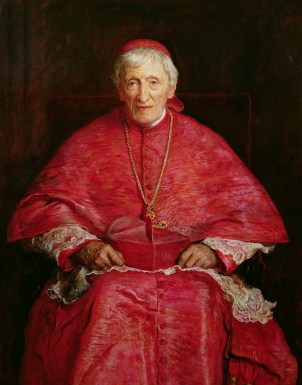httpv://www.youtube.com/watch?v=XB3S0fnOr0M&feature=related
Author Archives: Michael Happy
Adam Gopnik at Frye Festival Community Read
From Moncton’s Times & Transcript
Adam Gopnik to make appearance on Oct. 29 at city hall
A New York Times bestselling author will appear in Moncton later this month during the Frye Festival’s Fall Community Read.
Adam Gopnik, a writer for The New Yorker, will appear in the lobby of Moncton City Hall on Friday, Oct. 29 from 5 to 7 p.m.
The event will be followed by a reception with refreshments.
Born in Philadelphia but raised in Montreal, Gopnik left the familiarities of New York City in 1995 for the charm of Paris. His wife and their infant son went along, and for five years they tried to catch on to the quirks of French culture. Gopnik recorded his experiences, frustrations and delights in his “Paris Journal” for The New Yorker, which won him awards.
A collection of the Paris Journals was published in 2000 by Random House as “Paris to the Moon.”
“We encourage everyone to come discover this bestselling and award-winning author,” says Frye Festival executive director Danielle LeBlanc. “The way Gopnik relates the meeting of two cultures in Paris to the Moon fittingly reflects the realities of our daily lives here in Moncton.”
Those who want to read some of Gopnik’s work before the event can go to www.frye.ca.
A reading guide with information on the author and chapter summaries is also available on the website.
Admission to the event is “pay what you can,” with donations requested.
The Frye Festival’s Community Read series presents bilingual authors whose books are available in translation. The aim is to encourage dialogue between the linguistic communities by rallying them around one author and one book.
“The Hitchhiker’s Guide to the Galaxy”
httpv://www.youtube.com/watch?v=aboZctrHfK8
From the film adaptation: “the answer to life, the universe, everything”
On this date in 1979 Douglas Adams published The Hitchhiker’s Guide to the Galaxy, which eventually became the first of a six-part “trilogy.” This particular work will require two separate entries: one on science fiction and the other on satire.
Frye on science fiction in “The Bridge of Language”:
The same principle applies to science fiction, which is a form of romance, continuing the formulas of fantasy, Utopian vision, Utopian satire, philosophical fiction, adventure story, and myth that have been part of the structure of literature from the beginning. What the hero of a science fiction story finds on a planet of Arcturus, however elaborate and plausible the hardware that got him there, is still essentially what heroes of earlier romances found in lost civilizations in Africa or Asia. The conventions of literature have to take over at some point, and what we see, in science fiction no less than in Homer and Dante, is, in the title of a seventeenth-century satire set on the moon, mundus alter et adem, another world, but the same world. (CW 11, 320-1)
On “satire of the low norm” in Anatomy, which explains, among other things, why the Hitchhiker’s Guide itself is famously inscribed with the words “DON’T PANIC!”:
[The satire of the low norm] takes for granted a world which is full of anomalies, injustices, follies, and crimes, and yet is permanent and undisplaceable. Its principle is that anyone who wishes to keep his balance in such a world must learn first to keep his eyes open and his mouth shut. . . The [hero] of the low norm takes an attitude of flexible pragmatism; he assumes that society will, if given any chance, behave more or less like Caliban’s Setebos in Browning’s poem, and he conducts himself accordingly. On all doubtful points of behaviour convention is his deepest conviction. (CW 22, 211)
“Dent. Arthur Dent.”
Video of the Day: Kori Pop
httpv://www.youtube.com/watch?v=7_bamd1QlAU
“Nowhere Near My Heart”
Over the weekend I took in a John Lennon tribute concert featuring musicians from the local music scene. Hometown pride aside, I saw one performer who pushed me into the back of my seat: Kori Pop. She did a cover of Lennon’s “For the Benefit of Mr. Kite” that made the song her own. She’s got a voice like a piccolo trumpet and a quirky talent for lovely songs. Her latest video is above. Kori did all the puppetry, animation and photography herself. Both the video and the song are wonderful and will likely only leave you wanting more.
Website here. Facebook here. Reverbnation site here. Her album, From the Outskirts, here.
After the jump, a live performance of “Mr. Kite.” At the 1:58 mark Kori executes a hyperspace leap to a parallel dimension.
Thanksgiving
“To Come to Light” is a Thanksgiving sermon Frye delivered on October 5th, 1986 to mark the 150th anniversary of the founding of Victoria College.
A sample:
In moments of despair or bereavement or horror, we find ourselves staring blankly into an unresponding emptiness, utterly frustrated by its indifference. We come from the unknown at birth, and we rejoin it at death with all our questions about it unanswered. Sometimes we wonder whether humanity is capable of living in any world at all where consciousness is really a function of life. In a century of nuclear bombs and a pollution that threatens even the supply of air to breath and water to drink, the human race seems like a kind of crazy Oedipus, obsessed by the desire to kill his father God and rape his mother Nature. . .
The impression of a mindless universe is one that we get from certain aspects of nature. As long as we feel alone with a world of natural objects, where everything is an “it,” whatever is conscious will be an ego or “I,” and human society a collection of egos. Nature, not being conscious, doesn’t care whether we have any knowledge or not: we, so far as we are merely egos, care about knowledge only as a way of getting one step ahead of the next person. Such a society is what the Bible means by the Tower of Babel: a world where people either do not understand us or are simply distorted echoes of ourselves. Nations in this kind of world become hysterically hostile, piling up weapons with a kind of lethargic panic, yet half fascinated too by the thought of the destruction they would cause. The arts and sciences do what they can to make better sense of things, but a Tower of Babel society can use art and science only for exploitation, whether of other human beings or of nature. (CW 4, 364)
We can start by being thankful that we’ve not yet become self-destructive enough to play this terrible scenario through. And we might also be thankful that those growing up just behind us may prove to be wiser than we have been; that they may know Thanksgiving is not just another occasion to indulge ourselves, and recognize as we have not how rare is our blessing and how complete is our responsibility to it.
Video of the Day: “Tomorrow Never Knows”
httpv://www.youtube.com/watch?v=pB3HHrd3Qis
The official video from Apple Corp
It’s difficult to let this John Lennon 70th birthday weekend pass without at least one more song. I’m going with “Tomorrow Never Knows,” which was recorded in April 1966 at the dawn of the psychedelic era and is probably one of the best representatives of it (perhaps only matched by Lennon’s “A Day in the Life“). Even forty-four years later it sounds revolutionary. Sampling and re-mixed effects are very common in popular music now, but no one had ever done anything like this before or would do so again for a long time (I’d argue that it didn’t happen in any significant way till the nineties). And, remember, the Beatles and their brilliant producer George Martin did it under very primitive conditions, recording (for starters) on just four tracks and with no digital; just tapes that could be sped up, slowed down, spliced, played backwards, and that’s about it. And yet those limited conditions provided an avant garde masterpiece from a band that was redefining the mainstream. To put it into perspective: they’d recorded “I Wanna Hold Your Hand” just three years earlier.
After the jump, a documentary clip on the recording of the song.
Orson Welles
httpv://www.youtube.com/watch?v=CPkBmoMfp1I
Welles as Othello at the end of his tether: “nothing extenuate”
On this date in 1985 Orson Welles died (born 1915).
Frye’s attitude toward Orson Welles seems to have been somewhat iffy. He alludes to Welles on a few occasions, but they are not especially friendly. Frye and Welles were exact contemporaries (Frye born in 1912 and Welles in 1915), but Welles appears to have got under Frye’s skin as a callow interpreter of Shakespeare — a “boy genius” who perhaps earned the title prematurely.
Frye in Fools of Time:
In my own graduate-student days during the nineteen-thirties, there appeared an Orson Welles adaptation of Julius Caesar which required the hero to wear a fascist uniform and pop his eyes like Mussolini, and among students there was a good deal of discussion about whether Shakespeare’s portrayal of, say, Coriolanus showed “fascist tendencies” or not. But fascism is a disease of democracy: the fascist leader is a demagogue, and a demagogue is precisely what Coriolanus is not. (18)
More Lennon: “I Am the Walrus”
httpv://www.youtube.com/watch?v=RG73Pk1yUj8
Video version of “I Am the Walrus” from Magical Mystery Tour (excellent sound and picture)
John Lennon: “A Hard Day’s Night”
httpv://www.youtube.com/watch?v=CtgZvuRaafU&p=3334F2527CB8AFD8&index=1&feature=BF
How it looked and sounded when it all began. The movie was supposed to be a bit of exploitative ephemera — a quick cash-in before the fad passed, but it never did. There are undoubtedly many millions of people who still feel the thrill at the sound of that opening chord. . .
Today is John Lennon‘s 70th birthday.
Since this is our regular Saturday Night at the Movies spot, A Hard Day’s Night seems an appropriate way to celebrate. I’m glad to say that both the video and the sound are of excellent quality.
Frye on the Beatles here.
A couple of earlier Beatles posts here and here.
The rest of the movie after the jump.
Cardinal Newman
On this date in 1845, John Henry Cardinal Newman, was received into the Catholic Church.
Frye in The Secular Scripture:
Similarly, Christianity possessed a body of true myth or revelation, most of it in the Bible. This was distinguished from unauthorized myth by having a large body of conceptual writing attached to it, the doctrinal system of Christian theology. As with Plato, the Christian has to pass through the doctrinal system before he can understand the myths of the Bible. In the nineteenth century Cardinal Newman remarked that the function of scripture was not to teach doctrine but to prove it: this axiom shows how completely the structure of the Bible had been translated into a conceptual system which both replaced and enclosed it. Even the fact that the original data were for the most part stories, as far as their structure is concerned, often came to be resented or even denied. Whatever resisted the translating operation had to be bracketed as a mystery of faith, into which it was as well not to look to closely. (CW 18, 17)
Andrew Sullivan, who is Catholic and gay, has been an unwavering critic of the Ratzinger retinue in the Vatican, both for its decades-long criminal complicity in child rape and for its ruthless purge of gay clergy. Sullivan recently put up a very moving post about Catholicism and homosexuality, in which he cites Cardinal Newman and Gerard Manley Hopkins as instances of the Church’s hypocrisy on homosexuality, and as proof that a priest can be gay and a superlative Catholic. You can read the post, “Homosexuals as ‘Victim Souls'”, here.

